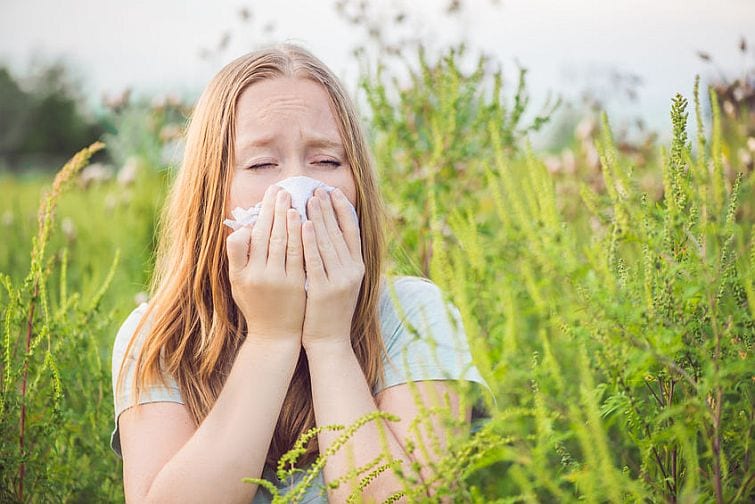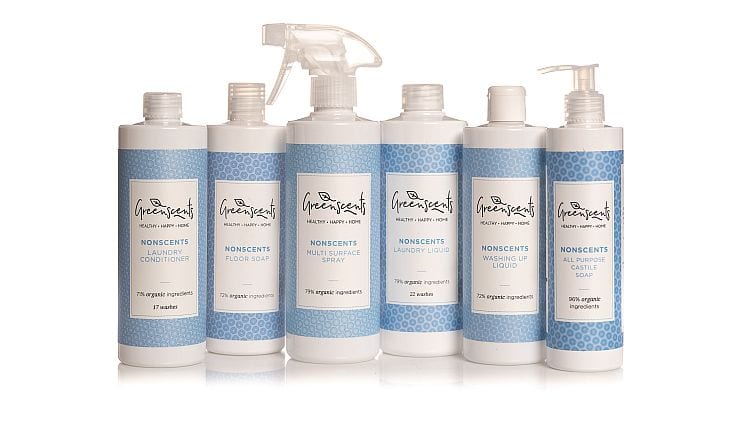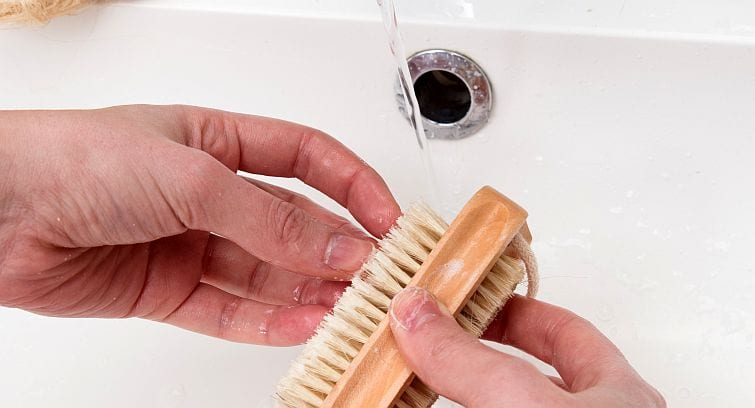
Those of us who suffer from allergies and autoimmune conditions often find a change of season affects symptoms but with the present risk of coronavirus, many people will find Spring 2020 challenging. Pollen counts are very high in the UK at the moment but there are many ways to reduce symptoms of hay fever and pollen allergies.
The sun is great for sanitising laundry
The good news is that air pollution in cities is reducing, so people with asthma and lung disorders such as COPD should see some improvements there. If you don’t suffer with springtime allergies, it’s a good time to open the windows and hang washing either on a line outside or on a rack near an open window. The sun’s ultra violet rays help to sanitise laundry which is very beneficial at the moment, although do be careful with dark items as they can bleach in bright sunlight.
Keep your prescriptions up to date
Asthma and eczema are two conditions that must be managed carefully at this time. It is particularly important not to run out of medication, so repeat prescriptions should be requested well in advance. Do remember that although inhalers and allergy medications will not work for Covid-19, they will keep your symptoms under control, improving your overall health and lowering your risk of contracting serious respiratory issues as a result of Covid-19.
Improve your indoor air quality
Both asthma and eczema are made worse by poor air quality, so ensuring that your home is well vacuumed with a machine using a HEPA filter is a must. Pollens, bacteria and some viruses are all filtered out with a HEPA filter so it is worth the investment but make sure you replace the filter regularly.
This is not the time to burn fragranced candles or use room sprays. Stick to unfragranced products as much as possible and always avoid artificial perfumes in the home and for personal care. In particular, multi-surface sprays can be very toxic and droplets will disperse into the air so do look for organic sprays with natural fragrances if you can tolerate these.

Asthma advice
If you have asthma, remember to wash your hands frequently and do not share towels or other personal items such as toothbrushes. Cutlery and mugs should always be washed thoroughly with hot water and organic washing up liquid and dried with a clean t-towel before using. More general advice on asthma and Covid-19 can be found at www.asthma.org.uk.
Eczema advice
If you have eczema, then washing your hands is more of a problem. Allergy UK and the National Ezcema Society have useful advice for dry skin and hand eczema. If your skin is dry wash your hands first with soap and water (see our coronavirus guide for advice on how) and then rewash with emollient to soften your hands and prevent skin cracks. Pat your hands dry rather than rubbing. Don’t forget – hands can be rehydrated over night by wearing cotton gloves after applying ointments.

The use of gloves
During the day, disposable nitrile gloves are very useful. Do be careful removing gloves – check our coronavirus guide for more details. If you do damage your skin it is best to cover it as a precaution. At the moment it is not clear whether broken skin is an additional risk for Covid-19.
Stay positive and reduce stress
For all of us with allergies, it is very important to remain positive and connect with friends and family as much as possible. During this lovely weather it is great to get outside if you can or exercise indoors with suitable work out routines. Mindfulness and yoga are helpful for reducing anxiety and stress which is important for promoting good sleep. Together with a healthy diet this all adds up to the best possible protection for beating the Covid-19 virus.
For more information on general hygiene issues and Covid-19 please see our Practical Guide to Coronavirus.



